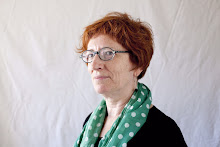
I've always been told, by my mother’s side of the family, that before going to Argentina, her father had emigrated as a child from Russia to Brazil, right at the beginning of the twentieth century, where his own father had “founded” the city of Nova Odessa, in the state of São Paulo. And also that afterwards, due to problems my great-grand-father had had with other immigrants there (the place was then known as the Colonial Nucleus of Nova Odessa), the family had quickly decided to leave Brazil and gone to Argentina, where they finally settled in the village of Basavilbaso, north of Buenos Aires, in the Argentinean province of Entre Rios.
Well, it looks as if that story is actually true, or at least almost true! I just found out, in a book published in 2008 under the title Judeus no Brasil: Estudos e Notas (“Jews of Brazil: Studies and Notes”), by Nachman Falbel, professor at the University of São Paulo, a passage about my great-grand-father himself! I must say I was flabbergasted - and couldn’t help laughing out loud thinking that after all, my family’s oral tradition, which I had never fully beleived (the idea of one of my ancestor being a “founder” of cities in the New World had always seemed a little too much) wasn’t that far from reality.
I don’t know if my great-grand-father was or not “thrown out” of the place by other colons – who, according to the family’s version of events were furious with him because he had promised them idyllic life conditions in Brazil which obviously didn’t come true. But the thing is that the historical account, as told by Nachman Falbel in his book, while clearly more realistic, isn’t that different from the one I was told in my youth.
For one thing, as Nachman Falbel remarks, the first Jewish colons to arrive from Russia to Santos, Brazil, starting in 1905 – and among them seven members of my family – weren’t all farmers: that’s what they had stated as their profession before embarking on the voyage, simply because they wanted to flee their native country and its pogroms.
But they didn’t like being farmers, they knew little about farming – and the hot and damp Brazilian climate didn’t help. Maybe my great-grand-father had actually convinced others to leave Russia with him, telling them they would be able to work at what they knew best – they were typographers, tailors, etc. –, and maybe they really became infuriated, and were preparing to ride him out of town with tar and feathers. I don’t know.
Nachman Falbel describes, in page 218 of his book, the very serious complaint my great-grand-father, Shaia Hassik, presented to the local authorities concerning the fact that his baggage was taking too long to be delivered to him. And the footnote on that same page adds some more salt and pepper to clearly show my great-grand-father’s negative state-of-mind at the time with regard to his new life in Brazil.
Based on information provided by the book about passenger lists of the ships arriving from Southampton, in 1905, I was also able to find online (through findmypast.com), the original embarkation document of the vessel Magdalena – and the exact date of their departure from England: April 21st.
This confirms that my family was in fact part of the very first group of Russian Jewish immigrants to arrive, at the beginning of May, at the Nova Odessa colony, which had officially just been founded by the Brazilian authorities – precisely on that month of April. So, even though my great-grand-father wasn’t “the founder” of Nova Odessa, he was after all one of its true founders…
Image credit: The National Archives, UK





No comments:
Post a Comment